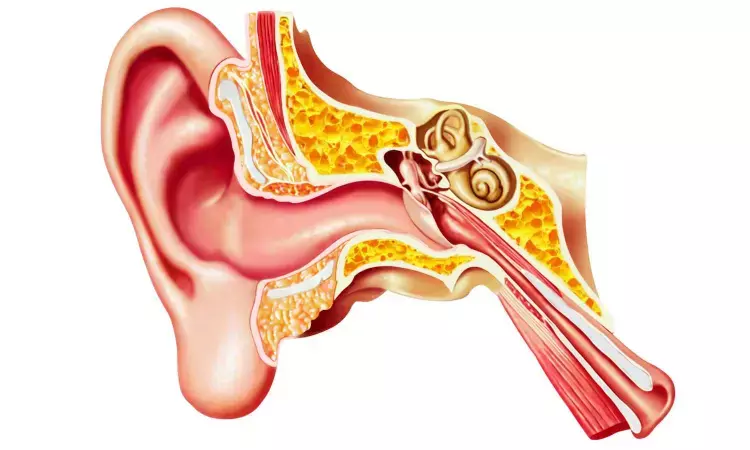- Home
- Medical news & Guidelines
- Anesthesiology
- Cardiology and CTVS
- Critical Care
- Dentistry
- Dermatology
- Diabetes and Endocrinology
- ENT
- Gastroenterology
- Medicine
- Nephrology
- Neurology
- Obstretics-Gynaecology
- Oncology
- Ophthalmology
- Orthopaedics
- Pediatrics-Neonatology
- Psychiatry
- Pulmonology
- Radiology
- Surgery
- Urology
- Laboratory Medicine
- Diet
- Nursing
- Paramedical
- Physiotherapy
- Health news
- Fact Check
- Bone Health Fact Check
- Brain Health Fact Check
- Cancer Related Fact Check
- Child Care Fact Check
- Dental and oral health fact check
- Diabetes and metabolic health fact check
- Diet and Nutrition Fact Check
- Eye and ENT Care Fact Check
- Fitness fact check
- Gut health fact check
- Heart health fact check
- Kidney health fact check
- Medical education fact check
- Men's health fact check
- Respiratory fact check
- Skin and hair care fact check
- Vaccine and Immunization fact check
- Women's health fact check
- AYUSH
- State News
- Andaman and Nicobar Islands
- Andhra Pradesh
- Arunachal Pradesh
- Assam
- Bihar
- Chandigarh
- Chattisgarh
- Dadra and Nagar Haveli
- Daman and Diu
- Delhi
- Goa
- Gujarat
- Haryana
- Himachal Pradesh
- Jammu & Kashmir
- Jharkhand
- Karnataka
- Kerala
- Ladakh
- Lakshadweep
- Madhya Pradesh
- Maharashtra
- Manipur
- Meghalaya
- Mizoram
- Nagaland
- Odisha
- Puducherry
- Punjab
- Rajasthan
- Sikkim
- Tamil Nadu
- Telangana
- Tripura
- Uttar Pradesh
- Uttrakhand
- West Bengal
- Medical Education
- Industry
Vestibular dysfunction not the only cause of motorist disorientation syndrome

A large case series aimed at understanding the factors underlying Motorist Disorientation Syndrome (MDS) has found that patients experience severe, consistent symptoms comparable to vestibular migraine. Previously there has been speculation that underlying peripheral vestibular hypofunction, when the inner ear part of the balance system is not working properly, contributes to this presentation. However, vestibular deficits were not a consistent feature in the patients studied. The findings have been published in the Journal of Vestibular Research.
In recent years there has been increasing interest in the complex integration of input signals that control spatial orientation, retinal stability, and balance in response to a changing visual environment such as in a moving car. MDS is a term used to describe patients who primarily experience symptoms of dizziness and/or disorientation when driving a car. There is currently only a limited amount of evidence-based information available about this condition.
Lead investigator Carolyn Ainsworth, MD, Neuro-otology, Department of ENT, Guy’s and St Thomas’ NHS Trust, explains, "Our research entailed looking at the presenting symptoms, characteristics and vestibular test results of a group of patients whose main complaint was of illusions of movement of self/vehicle when driving. We found consistencies in the presenting symptoms and a high symptom burden, however only 60% of patients had underlying vestibular test deficits. Although this does not exclude vestibular dysfunction, it does raise the possibility of other factors contributing to the development of this presentation.”
The study also found similarities to visually induced dizziness and persistent postural perceptual dizziness (PPPD), a functional neurological disorder. Other contributing factors could be anxiety and depression.
The symptoms of the 18 patients assessed were severe enough to cause 17 patients to change their driving habits. Six subjects stopped driving completely, while 11 stopped driving on roads that provoke MDS (open, featureless roads, going over the brow or descending hills, or going around corners). Only one patient continued to drive as usual.
"Diagnostic criteria are very much needed to aid research into effective treatments for patients. This study provides data that can contribute to discussion about where MDS should be placed within the current framework for diagnosis of vestibular disorders. In turn, improved recognition and appropriate classification of this symptom complex will help clinicians recognize the specific features of the condition, inspiring further research into the role of potential factors such as visual dependency and facilitating further research into treatment," Dr. Ainsworth concludes.
Reference:
Ainsworth, Carolyn et al. ‘Motorist Disorientation Syndrome; Clinical Features and Vestibular Findings’. 1 Jan. 2023 : 339 – 348.
Dr Kamal Kant Kohli-MBBS, DTCD- a chest specialist with more than 30 years of practice and a flair for writing clinical articles, Dr Kamal Kant Kohli joined Medical Dialogues as a Chief Editor of Medical News. Besides writing articles, as an editor, he proofreads and verifies all the medical content published on Medical Dialogues including those coming from journals, studies,medical conferences,guidelines etc. Email: drkohli@medicaldialogues.in. Contact no. 011-43720751


